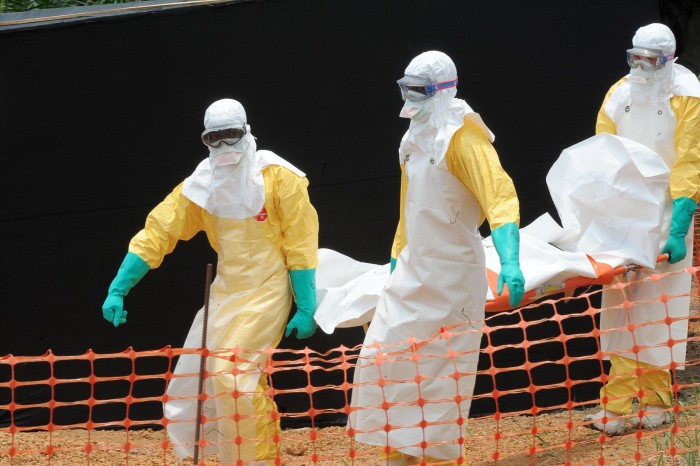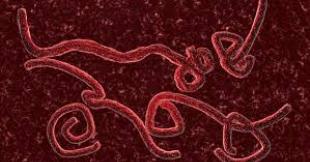Perhaps, you do not know, a new case of the Ebola Virus Disease was confirmed in Liberia last Friday. The news is coming after the declaration of the West African country free of the viral disease for the second time.
Currently, no fewer than 158 people are under observation in the county. This obviously is not good news to citizens and health officials who lost their loved ones and colleagues to Ebola at the height of the outbreak in the country.
Interestingly, the new case is coming at a time when many countries, including Nigeria and Liberia, think that the end has come for the viral disease that has killed over 10,000 persons globally.
Nigeria lost some of its brilliant professionals to the menace, especially a senior physician, Dr. Stella Adadevoh, who handled the treatment of the index case.
Meanwhile, the newest Liberia case has thrown up some issues. For instance, people still wonder why there are so many Ebola causalities. The reason, of course, is simple. It is a highly infectious disease, such that one can contract it just by touching a surface an infected person had earlier touched.
The virus, medics say, can stay in the body fluids, such as the semen, for many months even after an infected person had received treatment.
Ebola is one of the deadliest viruses, not only because it has no known cure, but also because it is highly infections. Medics say the disease can kill within hours or a few days after contracting it, whether an infected person gets treatment or not.
The initial symptoms of the viral disease include sudden fever, intense weakness, muscle pain and sore throat. It can later progress to vomiting, diarrhoea and, in some cases, internal and external bleeding.
Because the virus is highly infectious, it has killed both doctors and patients while they were receiving treatment. It also does not respond to any vaccine. It can live in the body system of an infected person for two days to three weeks without any symptoms.
Another attribute is that the virus is difficult to diagnose. Doctors note that by the time the symptoms start to manifest in an infected person, it is often too late to stop the spread of the virus through vital organs of the body. According to them, the best treatment an affected person can get is therapy.
Experts say we must not forget the very important lessons and habits we learnt during from the last Ebola outbreak.
Preventing infection
Stressing the need for residents to adopt an urgent precautionary measures against the disease, the Permanent Secretary in the Lagos State Ministry of Health, Dr. Modele Osunkiyesi, urges members of the public to maintain high standards of personal and environmental hygiene in order to prevent the outbreak of the disease.
Osunkiyesi, who notes that the main host of the virus is relatively unknown, however, adds that there is enough scientific evidence to show that the Ebola virus can be contracted by persons handling sick or dead infected wild animals, including chimpanzees, gorillas, monkeys, forest antelope, and fruit bats.
She says, “The Ebola virus can be spread through a close contact with the blood, body fluids, organs and tissues of infected animals; direct contact with blood, organ or body secretions of an infected person. The transmission of the virus by other animals like monkeys and chimpanzees cannot be ruled out.”
Osunkiyesi states that those at the highest risk of contracting the disease are health care workers who treat patients without taking the right precautions as well as families or friends of an infected person.
She notes that one could still contract the virus from an infected person as long as their blood and secretions contain the virus — in some cases, up to seven weeks after they have recovered. She adds that it does not exempt even those exposed to body fluids of a person killed by the virus.
Recognise the risk
She explains that though there is no specific treatment for the disease, persons with symptoms — including bleeding from the mouth, nose, rectum and ear; or those suffering from fever, malaria and cholera — should report to health centres closest to them, where they would be admitted for special care and treated in isolation.
Hunters and those who eat or handle game meat of monkeys and chimpanzees are also at risk, experts say; that is why the WHO warns against consuming raw bush meat and forbids any contact with infected bats, monkeys and apes. According to the WHO, these game meats are considered as delicacies in the areas where the outbreak started.
Wash your hands
Public health physician, Dr. Segun Adeboye, notes that there is no overemphasising the importance of washing one’s hands with soap and water to get rid of germs, bacteria and other viruses.
According to him, this age-long habit has reduced the risk of getting infections by more than 60 per cent.
Adeboye says, “Many people are aware of washing of hands, but what we are saying is that you should use soap or a disinfectant when you are washing your hands. That is what will kill the bacteria or virus. Also, the hand is the body part by which most infections are contracted. The average any person touches his/her mouth a day is at least 10 times.
“Imagine if you had touched an infected person with your hand unknowingly, and you do not wash your hand before eating. You have introduced a virus into your body just by being negligent. Science has proved that 70 per cent of infections are contracted via the mouth through the hands.”
If you cannot access potable water every time, you can always improvise with hand sanitisers. They are portable, which means, you can carry one in your bag, car and in your office.”
PUNCH.
 The Ebola virus was transmitted by semen and breast milk during the latter stages of the outbreak in Sierra Leone, a new study shows.
The Ebola virus was transmitted by semen and breast milk during the latter stages of the outbreak in Sierra Leone, a new study shows.



